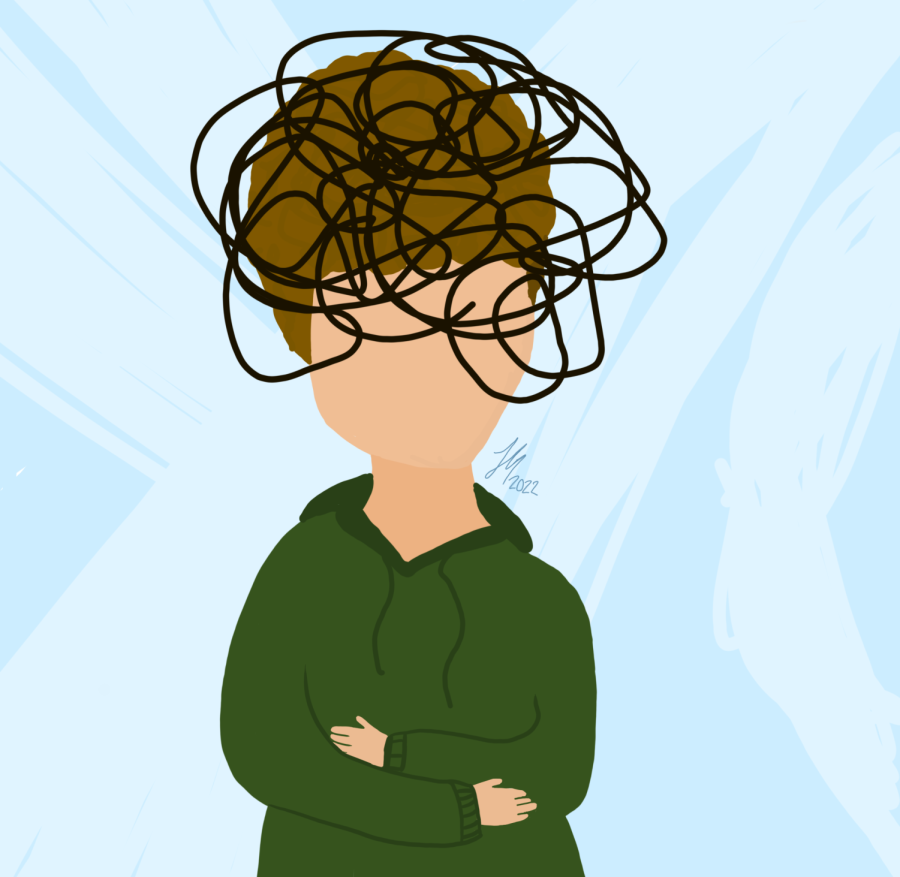Student Mental Health Struggles
October 6, 2022
The start of the school year can often feel lighter and less stressful than the end of the first semester. There are fewer tests, teachers are more relaxed, and students still have hope for the rest of the school year. However, many students experience burnout and declining mental health by the time finals roll around. You often hear teachers or students commenting on this saying they have ‘given up’ at this point in the year. While some may lack effort, many students are struggling with mental health. This struggle can be a gradual decline for many, but for some it is a steep drop off into a mental health crisis. School counselors and hotlines are the only resources available to many students, so they need to be as effective and supportive as possible.
According to The National Alliance on Mental Illness, or NAMI, “Undiagnosed, untreated or inadequately treated mental illnesses can significantly interfere with a student’s ability to learn, grow and develop. Since children spend much of their productive time in educational settings, schools offer a unique opportunity for early identification, prevention, and interventions that serve students where they already are.” Students are in a school setting for most of their child and teenage lives, and schools have a responsibility to educate students about depression, anxiety, suicide, eating disorders, and more, beyond the surface level. According to NPR, Sarah Lipson, who is an assistant professor of public health at Boston University, says, “The number of college students experiencing mental health issues first spiked in the 2015-2016 school year and has been going up since.” NPR also states that “while the past two years have been especially challenging, Lipson says not to belittle students’ feelings by explaining them away with the pandemic. In an academic year where there is a push for normalcy some students may not be ready to return to business as usual.” Many people try to attribute teen mental health struggles to the COVID-19 pandemic, but these issues have been happening for much longer and are now coming to light more than ever.
Students often find these struggles hindering their ability to do schoolwork, Sophomore Kate Kauztch states, “This does impact my schoolwork. It takes me longer to complete homework. And because I am so stressed it is harder for me to actually study and understand the work.” Of course, schools want the best performance possible from students, but that seems like a lot to expect when it feels like their resources are largely performative. Most students have an idea of how they could improve these resources. Junior Cooper Ward commented that IHS should offer “an anonymous phone line. Being able to talk to someone through the phone can remove a lot of fear from people. This makes it easier to open up, to be vulnerable sort of privately.” Ward also suggested a support group of sorts, “a student group geared towards just talking about experiences, thoughts, stress, etc. Having a place to talk about life could potentially help ground a lot of students.” Opening up to friends can also be a good way to find support, even if you are afraid of judgement. Friends or teachers can also be a good source of advice. Senior Nicholas McLachlan advises, “Really focus on yourself. Too many people have bad mental health because of other people” McLachlan brings up a good point of taking time for yourself, and not allowing toxic or negative people into your life.
Many high school students experience an immense amount of pressure from parents, grades, careers, and often even themselves. The perception that your high school grades will determine the rest of your life is false. It is okay to be social and take breaks from studying. There are many career paths and colleges that don’t require a 4.0 GPA. While grades are important, they do not determine your worth. Freshman Kate Quinn stated that she feels we need “more reassurance for less academic-oriented students who feel like they are not ‘good’ at school, that it is not the most important thing in the world, and you can have other careers and paths.” Focusing on school and grades is important, but do not forget to give yourself some grace and a break. Quinn also says, “Do things that make you happy. We only have this life as far as I know and it is just so sad that so many people spend it only worrying about school when there are so many amazing things you can do in life. People do not value their own time enough.” Balancing schoolwork and things that make you happy or things that give you a break is a good strategy for preventing burnout. Burnout can negatively affect your mental health, often giving people feelings of being ‘done’ with their routine. Kauztch shared her strategies to help with this, stating, “I listen to music when I get home. I take naps before doing work to give my brain a break” Doing small things like this can help your mood and your focus. It is important to remember that no matter how much pressure you feel from external factors, nothing should come before your mental and physical health.




